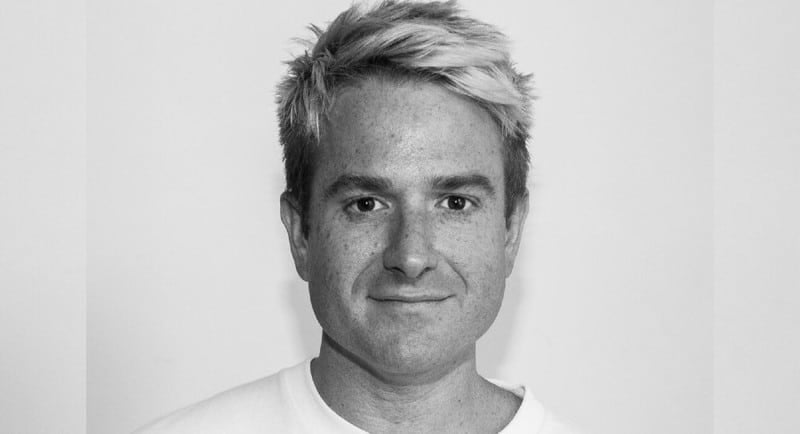Alex Reid was the former assistant to Kyle Sandilands before striking out on his own as a talent manager and co-founder of the entertainment agency, Amplify.
Reid, who also stars in Netflix’s Byron Baes and understands first-hand the influencer market and business, spoke to Mediaweek about the continuing rise of the influencer market and the importance of finding the right person to market a brand.
As brands are increasingly turning to influencers to market their products, he noted that the growing challenge in an oversaturated market of content creators for businesses is finding an influencer who aligns with their brand and has the correct engagement numbers.
Reid revealed: “I think what’s making it hard for brands is that there are so many ways people can create a fake audience and create fake engagement.
“While it might be something that people do to impress their friends, for brands, it just makes it harder to work out who has an authentic audience and who is valuable to them.”
He said that for marketers, it is necessary to understand an influencer’s follower base and what is relevant to them.
“We see this a lot where a good-looking female model might have a million followers, but are those million followers all men, and is she trying to promote female products.
“It’s about making sure that there’s a connection between your brand and the audience that the influencer represents,” he added.
Reid explained that influencers could create and build fake audiences by buying followers online using only a credit card.
He said: “The followers come from countries we would call follow farms in different parts of Southeast Asia, the Middle East. These farms are groups of bots creating numbers that like posts that don’t do anything.”
He continued: “It’s become sophisticated in the past couple of years. People can go online and choose comments added to their posts that make their content look more authentic.
“On a service level, it looks great. But every brand and agency out there investing money is using tools that show that.”
Meta, the parent group of Facebook and Instagram, and ByteDance, who own TikTok, are also doing their part to combat bots and fake farms.
Reid said: “Meta and ByteDance are constantly removing bots. They can detect these accounts are bots, delete and block them, taking them out of action and blocking the IP addresses.”
“Both platforms are doing something about it, but these follow farms are hard to stop. But you can see where Instagram is detecting the accounts of bots and having them wiped out.”
Reid noted that judging the authenticity of an influencer used to be a basic check. He said businesses “need to rely on third-party software to validate the influencer.”
For businesses looking to protect themselves, he noted that going through accredited agencies, such as Amplify, that use third-party software can assess an influencer’s statistics.
But, Reid noted the easiest way for brands to get such information about an influencer is to ask them to share screenshots from their Instagram account insights before working with them.
He noted that such information would provide a look into where their audience lives and their audience demographics – essential knowledge for businesses.
By that token, Reid said that influencers need to ensure they are “being transparent with their audience and on the front foot selling themselves based on the audience.”
He noted that influencers as creators should ensure everything has a contract in place, the usage of the content – print, outdoor, etc. – is agreed on and to know what their deliverables are for the fee.
Meanwhile, Reid advised budding influencers starting in the industry: “don’t try and be everything to everyone.”
“The beauty about a saturated market is there’s such a huge audience that if you’re really into something completely random, there’s a chance there’s an audience out there for it,” he said.
“Being yourself and being authentic to who you are is going to grow your audience because it is saturated. You need to be authentic to yourself, but it will be niche. If you are interested in broccolini and different broccolini recipes, there’s a chance a whole community is out there for you,” he added.
Reid also spoke about starring in Netflix’s Byron Baes, calling it “Australia’s biggest hate-watch for the year.”
“I’m not sure that’s a title that I’m proud of,” he chuckled.
“I think that at the start, the show was portrayed to be something that it wasn’t and it kind of played into everyone’s fears about what influencers were.”
He explained that once the show was released and people saw it was a show about five people living in Byron Bay, two of whom happened to be influencers, “people’s preconceived ideas of the show, versus what it turned out to be, were different.”
Reid said on the topic of a season two: “Who knows what the measure of success is at Netflix and what determines the second season. The show had a lot of talk-ability, whether good or bad.
“There was a time in pre-production and around release when everyone talked about the show. So, if that’s the measure of success, I wouldn’t be surprised if Netflix does commission a second season.
For his part in the show, Reid added: “It took some convincing to get me to do season one, and it would take me some convincing to do season two.”
